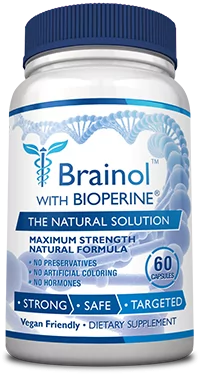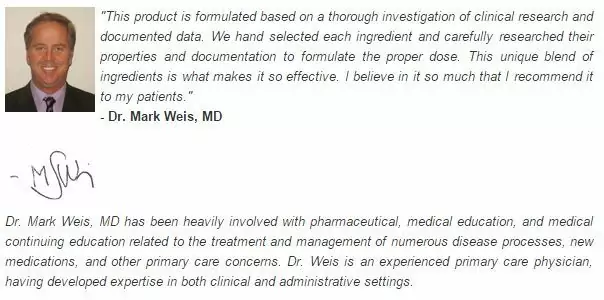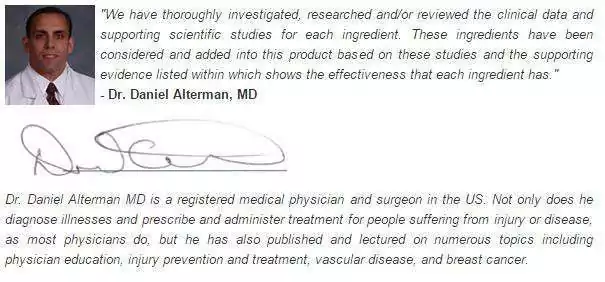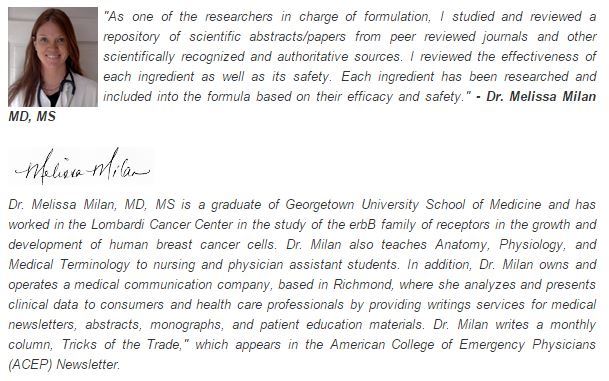Why is Brainol™ So Effective?

Brainol™ is a breakthrough proprietary supplement that effectively combines the most powerful and extensively researched ingredients, giving you a dual action fuel and boost solution. Every single ingredient in was hand-picked by a team of medical doctors and scientific researchers, based on clinical data and designed to help you reach your goals and succeed more effectively than any other cognitive enhancing supplement available.
Brainol™ contains clinically tested ingredients that meet the strength and purity standards of the USP/NF (United States Pharmacopeia–National Formulary). Each ingredient was carefully researched and included based on clinical data. No other non-prescription solution comes close to in terms of quality and purity of ingredients.
Recommended dose for adults is 2 (two) capsules daily with meals.
Click here to see our label.
Brainol™'s - Proprietary Blend of Ingredients:
 Magnesium is an essential mineral in the body and is a co-factor in over 300 enzymatic reactions. It is involved in energy production and nerve function. It relays signals between your brain and your body and also aids brain development, memory, and learning.
Magnesium is an essential mineral in the body and is a co-factor in over 300 enzymatic reactions. It is involved in energy production and nerve function. It relays signals between your brain and your body and also aids brain development, memory, and learning.
When brain magnesium levels are not optimal, synapse function deteriorates, suggesting that magnesium plays a significant role in promoting synaptic plasticity in the brain. Magnesium also contributes to functioning of the neurotransmitters involved in attention.
 L-glutamine HCL is a form of glutamine, an amino acid that can directly cross the blood–brain barrier and provide "fuel"to different cells in the body. It has been shown to be beneficial for moodiness, irritability, and insomnia, and is sometimes used to help improve attention. L-glutamine is a precursor to the neurotransmitter glutamate and is crucial to a healthy brain.
L-glutamine HCL is a form of glutamine, an amino acid that can directly cross the blood–brain barrier and provide "fuel"to different cells in the body. It has been shown to be beneficial for moodiness, irritability, and insomnia, and is sometimes used to help improve attention. L-glutamine is a precursor to the neurotransmitter glutamate and is crucial to a healthy brain.
 Huperzine A is a plant based compound that has been found to enhance cognitive function, improve memory and has neuroprotective effects. Huperzine A is an inhibitor to the breakdown of the neurotransmitter, acetylcholine. Because of this, mechanisms of huperzine A are mostly described through the mechanisms of acetylcholine. Acetylcholine acts in the central nervous systems showing increased response to stimuli, expectation of uncertainty, and improved learning and plasticity. Another mechanism of huperzine A is blocking a receptor which allows the transfer of electrical signals from the brain to the spinal column.
Huperzine A is a plant based compound that has been found to enhance cognitive function, improve memory and has neuroprotective effects. Huperzine A is an inhibitor to the breakdown of the neurotransmitter, acetylcholine. Because of this, mechanisms of huperzine A are mostly described through the mechanisms of acetylcholine. Acetylcholine acts in the central nervous systems showing increased response to stimuli, expectation of uncertainty, and improved learning and plasticity. Another mechanism of huperzine A is blocking a receptor which allows the transfer of electrical signals from the brain to the spinal column.
A recent study demonstrated results that showed 58 percent of the patients treated with Huperzine A had improvements in memory, cognition, and behavioural functions.
 L-Tyrosine is a multifaceted supplement promoted for applications as varied as stress relief to cognitive enhancement to fat burning to mood improvement. The effects of L-Tyrosine are so wide-ranging because it influences several brain systems at once. It is a non-essential amino acid used to manufacture a number of hormones and neurotransmitters including Dopamine, Norepinephrine, Epinephrine, and Thyroxine.
L-Tyrosine is a multifaceted supplement promoted for applications as varied as stress relief to cognitive enhancement to fat burning to mood improvement. The effects of L-Tyrosine are so wide-ranging because it influences several brain systems at once. It is a non-essential amino acid used to manufacture a number of hormones and neurotransmitters including Dopamine, Norepinephrine, Epinephrine, and Thyroxine.
 L-Theanine is an amino acid analogue of the proteinogenic amino acids and is found primarily in particular plant and fungal species. It was discovered as a constituent of green tea and is absorbed in the small intestine after oral ingestion.
L-Theanine is an amino acid analogue of the proteinogenic amino acids and is found primarily in particular plant and fungal species. It was discovered as a constituent of green tea and is absorbed in the small intestine after oral ingestion.
Able to cross the blood–brain barrier, theanine has reported psychoactive properties. Theanine has been studied for its potential ability to reduce mental and physical stress, improve cognition and boost mood and cognitive performance in a synergistic manner with caffeine.
 VitB-MD™ Vitamin B Complex contains B6, B12, B1, B2 and B3. All B vitamins are responsible for important functions including contributing to nerve health, heart and blood health, skin and eye health, reducing inflammation, hormonal function, and are used to maintain a healthy metabolism and digestive system. They support healthy blood flow, oxygenation, and energy production in the brain.
VitB-MD™ Vitamin B Complex contains B6, B12, B1, B2 and B3. All B vitamins are responsible for important functions including contributing to nerve health, heart and blood health, skin and eye health, reducing inflammation, hormonal function, and are used to maintain a healthy metabolism and digestive system. They support healthy blood flow, oxygenation, and energy production in the brain.
B6 increases energy, regulates mood and proper brain development. Researchers found that Vitamin B6 plays an important role in the production of serotonin and dopamine, which are necessary for nerve communication.
B12 decreases fatigue, lethargy and stress. It is a vital nutrient essential for everyone including older adults. As per recent research, adequate amount of B12 can prevent mental decline. Experts found that patients experiencing memory problems, when treated with B12, many symptoms disappeared within 6 months accompanied by improvements in mental clarity and focus.
B1 Thiamine is used in the biosynthesis of the neurotransmitter acetylcholine and gamma-aminobutyric acid (GABA). The brain requires a much greater amount of thiamine than in other cells of the body and deficiencies can lead to detrimental neurological effects if not present in the diet.
B2 Riboflavin deficiency may result in subtle neuropsychological impairment. It is needed for the function of every single cell in the body and brain.
B3 Niacin deficiency symptoms include irritability, poor concentration, anxiety, fatigue, restlessness, apathy, and depression. Niacin also appears to up-regulate brain-derived neurotrophic factor (BDNF) and tropomyosin receptor kinase B (TrkB) expression.
 Choline Bitartrate is a water-soluble essential nutrient discovered to increase the synthesis and release of acetylcholine by neurons, leading to an interest in dietary choline and brain function. Subsequent studies have shown an improvement in symptoms of Alzheimer's dementia, coordination of neurological symptoms, cognitive and emotional functions, activity and mood in patients with cerebrovascular disease.
Choline Bitartrate is a water-soluble essential nutrient discovered to increase the synthesis and release of acetylcholine by neurons, leading to an interest in dietary choline and brain function. Subsequent studies have shown an improvement in symptoms of Alzheimer's dementia, coordination of neurological symptoms, cognitive and emotional functions, activity and mood in patients with cerebrovascular disease.
 DMAE is known to have effective transportation to the brain and can result in a higher level of Cholinergic activity. Once DMAE reaches the brain, it is methylated. This is a reaction that involves the addition of a methyl group to a compound, and this reaction produces choline. However, the choline produced by DMAE is charged and cannot penetrate the blood brain barrier. The DMAE is then instead bound to phospholipids in place of the choline, which produces phosphatidyl-dimethylaminoethanol. This is then utilised in nerve membranes to increase fluidity and permeability, and also acts as an antioxidant.
DMAE is known to have effective transportation to the brain and can result in a higher level of Cholinergic activity. Once DMAE reaches the brain, it is methylated. This is a reaction that involves the addition of a methyl group to a compound, and this reaction produces choline. However, the choline produced by DMAE is charged and cannot penetrate the blood brain barrier. The DMAE is then instead bound to phospholipids in place of the choline, which produces phosphatidyl-dimethylaminoethanol. This is then utilised in nerve membranes to increase fluidity and permeability, and also acts as an antioxidant.
Studies have found that DMAE improves memory, learning and concentration as well as having a net positive effect on intelligence. This is most likely due to the fact that it potentiates the synthesis of acetylcholine in the brain. Acetylcholine is a neurotransmitter that neurons use to communicate when consolidating, encoding and recalling memories. It also plays a role in our ability to focus as well as the plasticity of the brain. Higher levels of acetylcholine can lead to greater clarity of thought, memory retention, focus, and analytical skills.
 Alpha Lipoic Acid has a strong ability to neutralize the damaging effects of oxidative stress and is the subject of intense study in preventing free radical damage to the neurological system.
Alpha Lipoic Acid has a strong ability to neutralize the damaging effects of oxidative stress and is the subject of intense study in preventing free radical damage to the neurological system.
Lipoic acid is able to pass readily into the brain and reach all parts of a nerve cell. Experimental studies have shown that lipoic acid reduced brain damage after a stroke, and that those animals who received lipoic acid had a survival rate three times greater than those that did not. Some of the protective effects conferred by lipoic acid in promoting healthy nerve function may be related to its ability to regenerate the antioxidant glutathione, which is often significantly depleted by harmful oxidative stress associated with cerebrovascular events such as stroke.
New evidence also suggests that lipoic acid may help guard against one of the most dreaded conditions associated with aging—Alzheimer's disease. Researchers have identified a series of mechanisms through which lipoic acid may work in helping prevent or manage Alzheimer's disease. Scientists believe that lipoic acid may increase the production of acetylcholine, an essential nervous system messenger that is deficient in the brains of Alzheimer's disease victims.
 Phosphatidylserine is essential to help brain neurons support and maintain memory function and neuroplasticity—the dynamic capacity to replace damaged neurons and to make new ones. Neuron-to-neuron communication and neuroplasticity depend on a steady supply of phosphatidylserine and other “smart" nutrients.
Phosphatidylserine is essential to help brain neurons support and maintain memory function and neuroplasticity—the dynamic capacity to replace damaged neurons and to make new ones. Neuron-to-neuron communication and neuroplasticity depend on a steady supply of phosphatidylserine and other “smart" nutrients.
In 2003, even the biased FDA granted “qualified health claim" status to phosphatidylserine, allowing supplement manufacturers to state that “consumption of phosphatidylserine may reduce the risk of dementia in the elderly" and “consumption of phosphatidylserine may reduce the risk of cognitive dysfunction in the elderly."
Studies suggest that phosphatidylserine can benefit people of all ages. In the middle-aged and the elderly, phosphatidylserine has been shown to prevent and restore memory loss and alleviate stress and anxiety. Preliminary research indicates that phosphatidylserine may also benefit children with attention, learning, or behavioral problems.
 Acetyl-L-Carnitine (ALCAR) is a compound used in the generation of metabolic energy and is a powerful antioxidant and reduces fatigue. Acetylcarnitine and carnitine play important roles in the human body. These nutrients shuttle acetyl groups and fatty acids into mitochondria for energy production. Therefore it serves as an energy reservoir of acetyl groups and both nutrients help improve energy production.
Acetyl-L-Carnitine (ALCAR) is a compound used in the generation of metabolic energy and is a powerful antioxidant and reduces fatigue. Acetylcarnitine and carnitine play important roles in the human body. These nutrients shuttle acetyl groups and fatty acids into mitochondria for energy production. Therefore it serves as an energy reservoir of acetyl groups and both nutrients help improve energy production.
Studies have shown that it decreases problems with attention and aggression in boys diagnosed with ADHD, improves concentration and mental fatigue in those with chronic fatigue syndrome, improves symptoms of autism spectrum disorders, improves recovery after exercise, improves mental and physical fatigue and status in the elderly, improves arterial hypertension, insulin resistance, and impaired glucose tolerance in those with increased cardiovascular risk.
 Brahmi (Bacopa monnieri) is an herb that contains numerous psychoactive compounds, It increases brain function and memory. Brahmi has been extensively tested and proven as a memory and concentration enhancer. Results of a recent study showed that Brahmi reduced the time needed to learn a new task by almost half! Participants taking Brahmi mastered the exercise in as little as 6 days compared to 10 days for the control group.
Brahmi (Bacopa monnieri) is an herb that contains numerous psychoactive compounds, It increases brain function and memory. Brahmi has been extensively tested and proven as a memory and concentration enhancer. Results of a recent study showed that Brahmi reduced the time needed to learn a new task by almost half! Participants taking Brahmi mastered the exercise in as little as 6 days compared to 10 days for the control group.
Furthermore, it improves working memory, speed of visual information processing, learning rate, memory consolidation, and anxiety. It improves cognitive function, depression, and anxiety and it improves memory acquisition and retention in the elderly.
 Guarana (Paullinia cupana) is widely employed as a stimulant, to relieve fatigue, boost energy, aid concentration and brighten mood. It naturally contains between 2.5 to 7 percent of caffeine. Additionally, guarana contains tiny amounts of theophylline and theobromine, which are similar to caffeine, although they exert subtly different effects on the body. Caffeine stimulates the central nervous system and is a cortical stimulant, thus moblizing brain function. It stimulates the flow of blood in the brain and increases secretion of the important neurotransmitter, serotonin.
Guarana (Paullinia cupana) is widely employed as a stimulant, to relieve fatigue, boost energy, aid concentration and brighten mood. It naturally contains between 2.5 to 7 percent of caffeine. Additionally, guarana contains tiny amounts of theophylline and theobromine, which are similar to caffeine, although they exert subtly different effects on the body. Caffeine stimulates the central nervous system and is a cortical stimulant, thus moblizing brain function. It stimulates the flow of blood in the brain and increases secretion of the important neurotransmitter, serotonin.
Guarana also contains molecules called tannins, which some say causes the caffeine in guarana to release slowly, producing a long-lasting energy plateau its long-lasting effects.
Tests on humans determined that a 75 mg dose of dried extract could improve task performance and increase attention span for up to six hours. Other research suggests that adding guarana to a multivitamin can help young adults perform better at mental tasks and fight the mental fatigue associated with long periods of brainwork, like studying for finals.
 St. John's wort (Hypericum perforatum) is a shrubby plant with clusters of yellow flowers and is a native of Europe, Asia and Africa and the United States. It was used in ancient Greece to treat various nervous disorders. St. John's wort contains hypericin, hyperforin, and flavonoids. It also has antibacterial, antioxidant and antiviral properties. St. John's wort is known for its capacity to reduce symptoms of mild-to-moderate depression and as a protector of the neurotransmitters responsible for mood regulation, energy and concentration.
St. John's wort (Hypericum perforatum) is a shrubby plant with clusters of yellow flowers and is a native of Europe, Asia and Africa and the United States. It was used in ancient Greece to treat various nervous disorders. St. John's wort contains hypericin, hyperforin, and flavonoids. It also has antibacterial, antioxidant and antiviral properties. St. John's wort is known for its capacity to reduce symptoms of mild-to-moderate depression and as a protector of the neurotransmitters responsible for mood regulation, energy and concentration.
 Ginkgo Biloba is often used for memory disorders including Alzheimer's disease. It is also used for conditions that seem to be due to reduced blood flow in the brain, especially in older people. These conditions include memory loss, headache, ringing in the ears, vertigo, difficulty concentrating, mood disturbances, and hearing disorders.
Ginkgo Biloba is often used for memory disorders including Alzheimer's disease. It is also used for conditions that seem to be due to reduced blood flow in the brain, especially in older people. These conditions include memory loss, headache, ringing in the ears, vertigo, difficulty concentrating, mood disturbances, and hearing disorders.
A Cochrane meta-analysis of 33 trials concluded that ginkgo appears to be safe, and showed promising evidence of improvement of cognition and function among patients who received the herb.
A randomized, placebo-controlled trial of the effects of ginkgo in healthy, noninstitutionalized adults without dementia or other known mental deficit, from six weeks of ginkgo therapy (180 mg per day) on several standardized neuropsychologic measures of memory and learning showed clinically significant cognitive benefits in healthy persons. BioPerine® is a patented natural black pepper extract standardized to 95% Piperine which has been clinically proven to enhance the bioavailability of the active ingredients by at least 30%.
BioPerine® is a patented natural black pepper extract standardized to 95% Piperine which has been clinically proven to enhance the bioavailability of the active ingredients by at least 30%.
Black pepper has been used for centuries and is one of the most well-known spices throughout the globe. Known as the 'King of Spices', it has gained its reputation largely due to its piperine content.







 Brainol™'s formulation of effective ingredients and strong name recognition have brought praise from both customers and health professionals alike. To learn more about the research and data behind Brainol™ , please visit our "
Brainol™'s formulation of effective ingredients and strong name recognition have brought praise from both customers and health professionals alike. To learn more about the research and data behind Brainol™ , please visit our "




